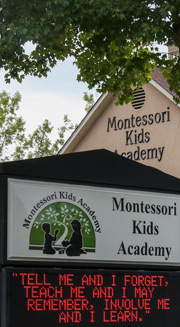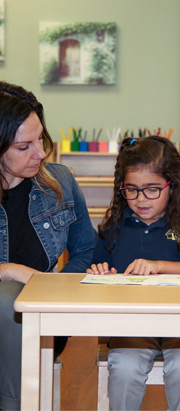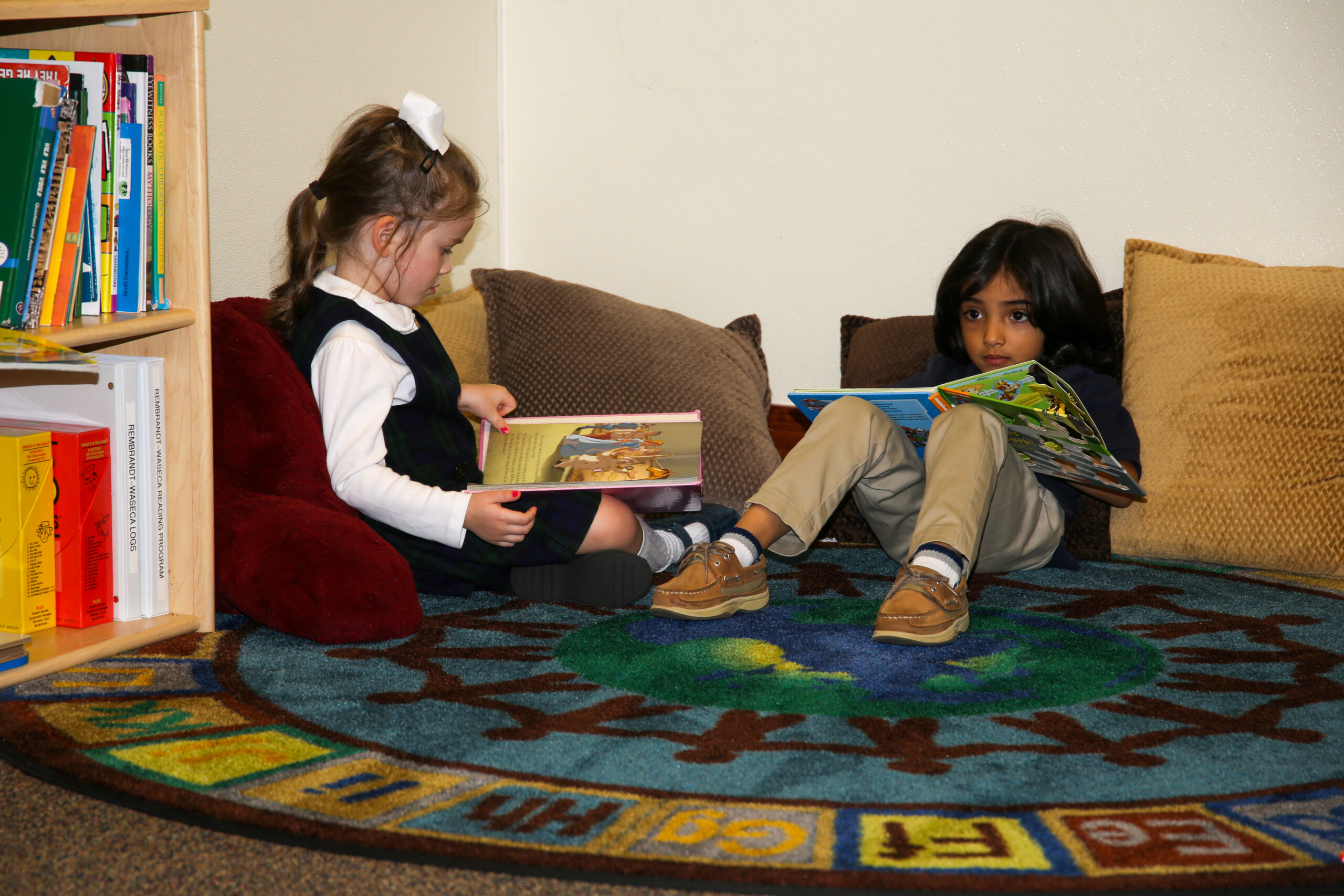December Tuition Special
Overview of the Primary/Kindergarten Classroom Areas
Primary classrooms are designed especially for the children. The entire environment is carefully created to facilitate their learning process. Maria Montessori observed that children learn by doing and wrote that the “hand was the instrument of the mind”.
The Montessori curricula, techniques and materials satisfy the natural tendency for this age child to learn by doing. Independence, coordination, order, self-discipline and concentration are developed. Children work individually and cooperatively with materials that engage their curiosity.
The children are given lessons using the materials and then are free to explore and observe. An emphasis is placed on the process rather than the product of learning. The aim is to develop a love of work and a joy of learning.
The Montessori Primary classroom includes activities in the areas of Practical Life, Sensorial, Mathematics, Language Arts, Science, and Geography.
Practical Life
Work that emphasizes fine motor skills and independence
Teaches concentration, hand-eye coordination, and order
Crossing the mid-line stimulates both hemispheres of the brain, laying neuropathways for future math and science skills
Three-year-old children spend the majority of their time in this area
Sensorial (refinement of the five senses)
Visual Discrimination-like colors, thick and thin, large and small, shapes
Auditory Discrimination
Tactile Discrimination
Tasting and Smelling Exercises
Mathematics
Concrete to Abstract
Quantity first, Numeral second
Sandpaper Numerals–teaches memorization of the number and handwriting with muscle memory;
Addition and multiplication first, then subtraction and division
Geometry
Hierarchy of the Decimal System
Fractions
Language Arts
Pre-language skills including Matching, Sorting, Sequencing, Rhyming
Handwriting–tracing the Metal Insets–small knobs train the hand for holding a pencil correctly
Sandpaper Letters–the child will memorize the formation of the letter and its sound before being able to write it on paper–when he is ready to write, he will recall the formation
Word Formation: Initial and final consonants, vowels and middle vowels Making words with the Movable Alphabet
Daily Reading Program
Science (instilling a deep respect for nature)
Basic–Living/Non-Living, Plant/Animal
Seasons, Weather
Vertebrates/Invertebrates
Animal Classification–mammals, reptiles, fish, amphibians, birds, insects
Plant Life–leaves, trees, flowers, plants and seeds
Life Cycle
Solid, Liquid, Gas
Geography (instilling a deep respect for people and the world around us)
The earth is made of Land, Air, & Water.
Concentration on each of the 7 continents (focus on animals, people, biomes, culture)
Land Forms–Lake/Island, Cape/Bay, Peninsula/Gulf, Strait/Isthmus
Solar System
Reading Area
Quiet area for sitting and choosing a book to read or browse
Kindergarten School Day
Our program provides a full day Montessori experience. The morning is spent in the classroom with a mixed age group of children. After lunch, when their younger classmates have left the room for their nap, the kindergarten children are left to work further on lessons, especially mathematics, language arts, and handwriting. This provides the children with another work period for a more successful transition to the elementary classroom.





